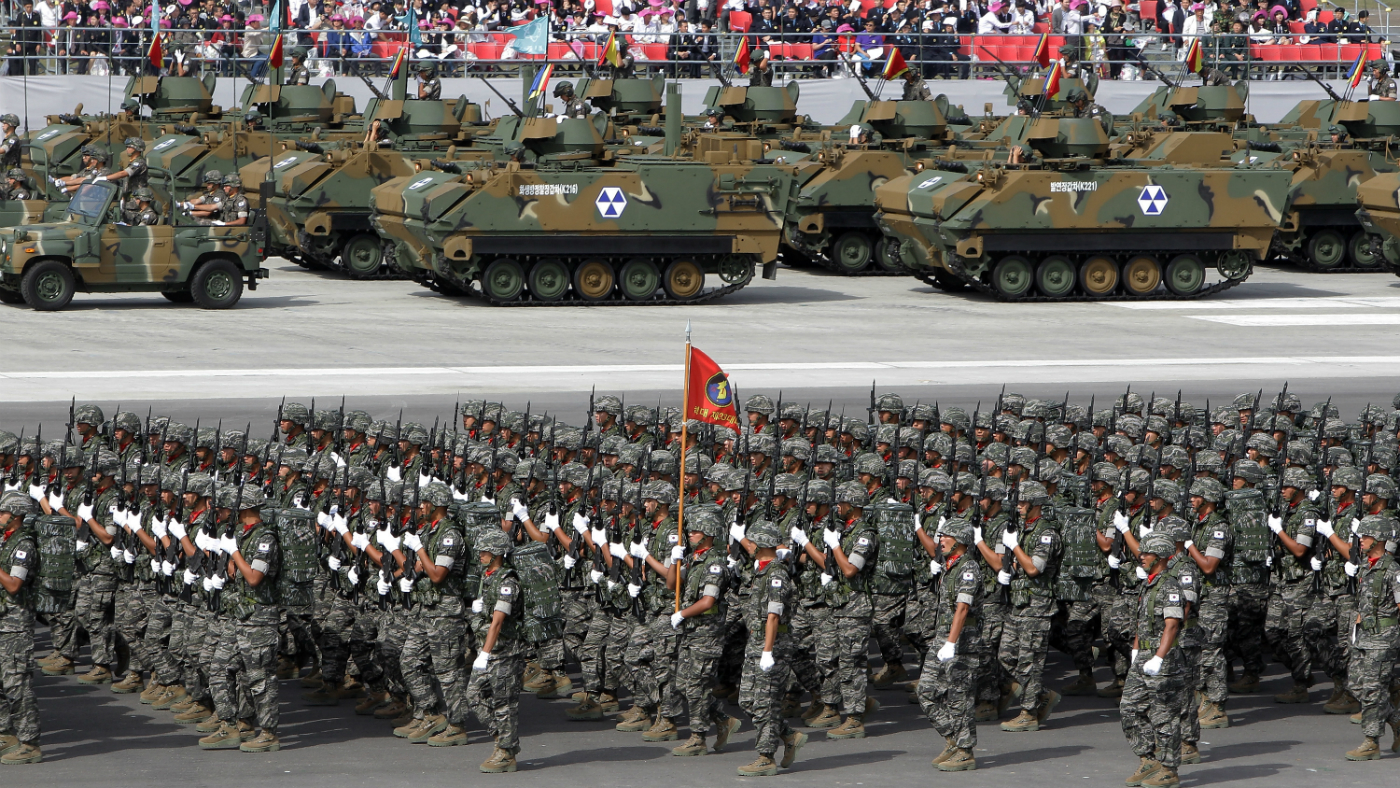South Korea ‘decapitation squad’ to target North’s leaders
Seoul announces assassination brigade following Kim Jong Un’s nuclear test

A free daily email with the biggest news stories of the day – and the best features from TheWeek.com
You are now subscribed
Your newsletter sign-up was successful
South Korea is establishing a special forces assassination unit to target the North’s leadership and thwart Kim Jong Un’s nuclear ambitions, it has emerged.
Defence Minister Song Young-moo told lawmakers in Seoul of the government’s plans for the so-called “decapitation unit” last week, one day after North Korea’s successful test of its sixth nuclear bomb.
Although the unit has not been assigned to literally decapitate North Korean leaders, “that is clearly the menacing message South Korea is trying to send”, says The New York Times’ Choe Sang-Hun.
The Week
Escape your echo chamber. Get the facts behind the news, plus analysis from multiple perspectives.

Sign up for The Week's Free Newsletters
From our morning news briefing to a weekly Good News Newsletter, get the best of The Week delivered directly to your inbox.
From our morning news briefing to a weekly Good News Newsletter, get the best of The Week delivered directly to your inbox.
The brigade-sized unit of 2,000 to 4,000 soldiers could be tasked to kill Kim and other North Korean leaders, pre-empt a North Korean strike on the South, or fight in a war, Vox reports.
It is rare for a country to announce plans to assassinate a head of state, but according to Business Insider: “The South is trying to freak out its northern neighbour and get it to the negotiating table instead of further developing nuclear weapons.”
It is a difficult balancing act, however - one that pits South Korea’s preference for diplomatic talks against its need to deter a potentially unstable northern neighbour with nuclear ambitions.
"The best deterrence we can have, next to having our own nukes, is to make Kim Jong Un fear for his life," retired South Korean Lt. Gen. Shin Won-sik told The New York Times.
A free daily email with the biggest news stories of the day – and the best features from TheWeek.com
Seoul reportedly plans to set up the brigade by the end of the year.